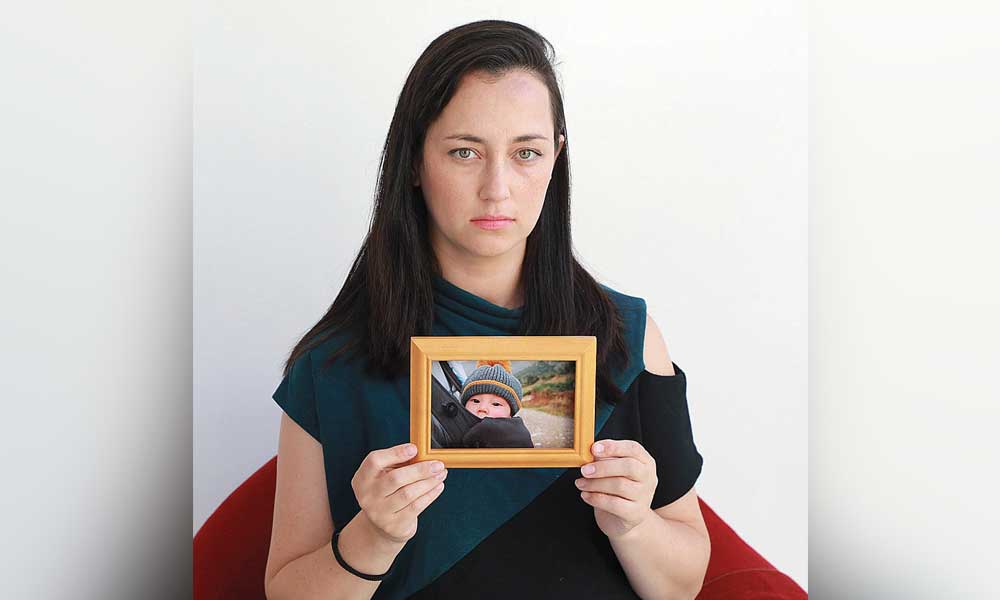Sometimes a single truth, belatedly discovered, can change one’s world view with surprising swiftness. The article that changed mine was published in Haaretz—a newspaper I never read, considering it, like most Israelis, to be far left of the Far Left. I’d only bought it because my granddaughter Matan’s photo was on the front page, part of an article about teen journal writing during COVID.
The article in question was a long interview by journalists Noa Lemone and Hilo Glazer with Anat Dayagi, founder of Parents for Infant Care, who was propelled to activism when her healthy eight-month-old son David died in a daycare center four years ago. At the time, there were eight babies in the center and only one carer, who later admitted she was “half-asleep” and did not know how to administer CPR. The carer called for an ambulance only after placing three phone calls to her husband. By the time the medics arrived, as they later told Dayagi and her husband, the baby was “blue and cold and had been dead for some time.”
Police investigators closed the case quickly, calling it a “crib death.” Dayagi investigated and was shocked to discover that no laws had been broken: Current Israeli law allows anyone to open a daycare center, without any licensing criteria, training or government inspection. “Criminals, pedophiles, drug addicts…no problem, all are welcome,” Dayagi says bitterly. No rule barred having one carer for eight babies, although accepted professional guidelines call for a one-to-three ratio.
Dayagi vowed to tighten the laws, and she made slow but steady progress getting the support of politicians and ministers—that is, until she hit the brick wall of the lobbying group Kohelet Policy Forum.
The Forum—whose greatest achievement so far has been to create and lobby through the Knesset the Basic Law defining the State of Israel as the homeland of the Jewish people—is officially politically neutral and is funded mostly by U.S. donors, including the right-leaning Tikvah Fund. It describes itself on its website as “an independent research and practice institute operating from Jerusalem to secure the future of Israel as the nation state of the Jewish people, to strengthen representative democracy, to expand individual freedoms and to deepen the principles of the free market.” Before learning about Dayagi, I would have described myself as an avid supporter of all of these things. But Dayagi’s story reveals the Kohelet Forum’s wider agenda—as well as what lies behind its ideals when put into practice.
With support from Knesset members Yifat Sasha Biton and Karin Elharar, Dayagi helped pass a 2018 law making the operation of an unlicensed daycare center a criminal offense, stating that a person with a criminal record cannot open such a center and requiring that children be supervised at all times. Although vague and hard to enforce, the law was slated for implementation by 2019. More momentum came from public demonstrations over another daycare scandal, in 2019, in which graphic footage showed children and babies in the Baby Love daycare center in Rosh Ha Eyin being tied up, force-fed and smothered by blankets.
But then progress stalled. New objections had suddenly arisen from an unexpected quarter: The Kohelet Forum prepared a position paper objecting strenuously to the entire law on the grounds that the cost of hiring more carers would be prohibitive. With the backing of the ruling party and the Haredim—who have a paramount interest in keeping daycare costs low—Kohelet opposed early education legislation on the grounds that it would put many private daycare centers out of business. Their slogan: “It is not nice to see a nursery closed.”
“Their reach and power is awesome,” Dayagi says in the interview. “They put pressure on every front, even reaching out to clerical workers. They have direct contact with ministers, mainly on the Right but not just.”
In the article, Kohelet Forum director Meir Rubin explains that “I sent my two children to private nurseries and paid 6,000 shekels [about $1,800] a month. It takes a lot of chutzpah for them to force me to pay more…Parents know what’s good for their children.” Rubin argues that “there is no statistic which shows there are more accidents in private daycare than in government-run institutions,” a stance consistent with the Kohelet Forum’s emphasis on “deepening free market principles,” not unlike that of many U.S. conservatives.
Although I may agree with some of their agenda, this story convinces me that the Kohelet Forum’s lobbying power is dangerous, particularly in the sphere of social policy. Our youngest citizens deserve laws that put their well-being above the profit margins of daycare center providers. In the run-up to the March elections, I have closely monitored the candidates’ support for early childhood reform, planning to take that information with me into the voting booth—and distancing myself from my usual ideological comfort zones. And I think I will be reading Haaretz more often.
Naomi Ragen is a novelist and playwright living in Jerusalem.
Opening picture: Anat Dayagi with a photo of her late son, David.


